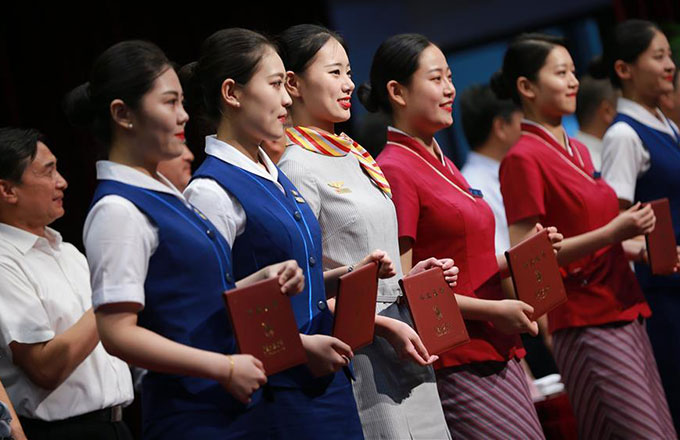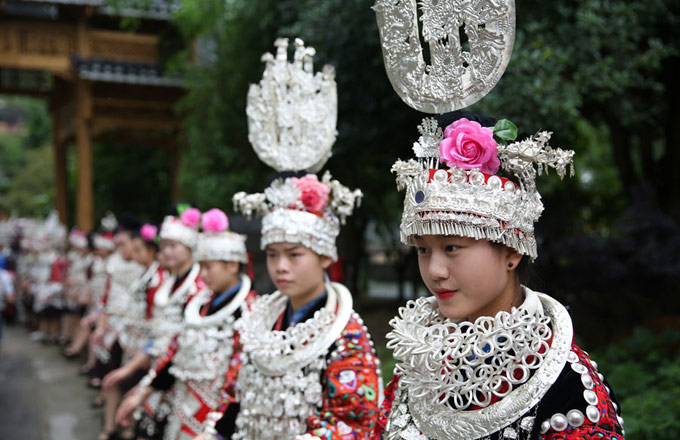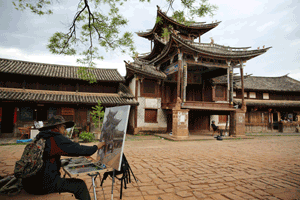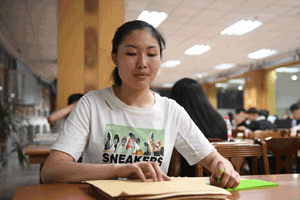US national living the Chinese dream
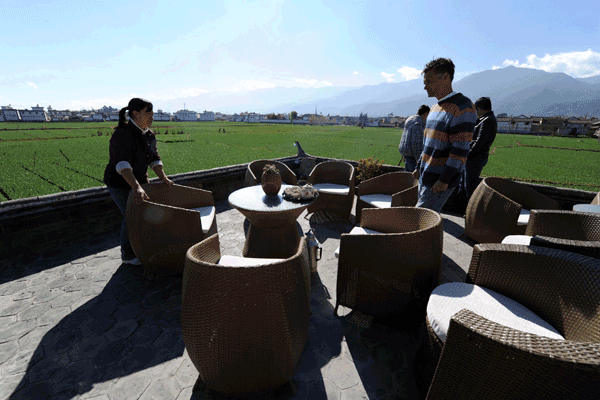 |
|
Brian Linden helps to set up a dining area at his hotel in Xizhou, Yunnan. REN DONG/CHINA NEWS SERVICE |
When he was 16, Brian Linden, from Chicago, started cleaning carpets 40 hours a week to make a living. In 1983, with little hope in life, he was in the fourth year of the job when he met a professor from Chicago University.
At the time, Linden had no idea where China was, so he never expected his destiny would be linked with the country or that he would devote himself to protecting its culture.
"'I don't have any choice.' That's what I told the professor when he said I shouldn't clean carpets all the time," recalled Linden, co-founder of the Linden Center, a heritage hotel in Xizhou township, Dali city, Yunnan province.
The professor offered Linden a choice by telling him that China was recruiting foreign students. Linden followed his suggestion to apply, and was successful as the "most proletarian" applicant, because he his father was illiterate and his mother didn't finish senior high school.
Soon after his arrival in China in 1984, Linden was chosen by the Beijing Film Studio to act in a movie. When CBS interviewed him about the film, he asked the broadcaster to employ him in China, gaining the job after spending a month teaching himself how to use a camera.
"I went from being a nobody from America to suddenly having hopes and dreams," the 50-something said, adding that his experience in China helped him win a scholarship to study at John Hopkins University and at Stanford University.
He said he was one of the few US nationals who "have been changed completely by the Chinese dream" rather than the American dream: "Most of these people already had the American dream because they had the money to go to university. I didn't have that."
Having visited more than 100 countries, he said Chinese culture is one of the best.
In 2006, he and his wife, Jeanee, quit their jobs, sold their house in the US and decided to settle down in China with their two children.
After traveling around for about two years, they started a heritage hotel in a traditional Bai ethnic compound in Xizhou, which was built in 1947 and listed as a national cultural heritage site in 2001.
Because it was large, old house, Linden could use to show that "even though you preserve the natural beauty and don't dress it up much, it will still seduce the world".
"We came here because we know China is not well-presented to the world. China's culture needs a new model of protection and promotion," he said.
For Linden, the biggest challenge he has met while running the hotel is the lack of recognition of heritage hotels in China.
The Chinese model of tourism relies greatly on luxury instead of tradition and good amenities: "Some of our Chinese guests have expectations of luxury and comfort that we cannot match here."
He and his employees have to overwhelm clients with their service and passion to makeup for the "hardware" in competition with other hotels.
Heritage hotels are still new in China, and some people still don't know exactly what they are. The situation is changing, though, thanks to the media's growing attention to the new phenomenon.
Linden employs 60 local people at the 16-room hotel because locals are also important for the hotel, and it needs to get the locals involved.
"This (the Linden Center) will be part of Xizhou and part of Chinese culture forever. This building should be taken good care of. It shouldn't be just a foreigner doing this. I hope that one day the local people will be able to take this over. It would be a joy to know that we provided a model and gave it back to the community," he said.




